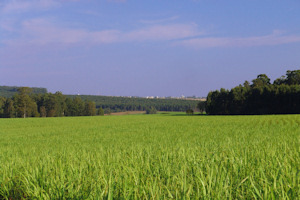Study unveils vast potential of UK biomass resources







February 21, 2014
BY Erin Krueger
A new study has found the U.K. could generate up to 44 percent of its energy needs from domestic biomass sources by 2050. The study, titled “Securing a BioEnergy Future without Imports,” was completed by scientists from the Tyndall Centre for Climate Change Research at the University of Manchester.
According to the study, the researchers used a biomass research model that reflects key dynamics in the biomass supply chain and interactions that determine resource availability. It takes into account climate, food, land and other constraints. Results of the model indicate biomass residues from agriculture, forestry and industry could provide up to 6.5 percent of energy demand by 2050. Waste resources could provide up to 15.4 of demand, with purpose-grown energy crops capable of meeting up to 22 percent of demand.
Advertisement
Advertisement
"The UK has legally binding renewable energy and greenhouse gas reduction targets, and energy from biomass is anticipated to make major contributions to these. The widely discussed barriers for energy from biomass include the competition for land that may otherwise be used to grow food and the narrative that biomass will have to be imported to the UK if we want to use increased levels of bioenergy. But our research has found that the UK could produce large levels of energy from biomass without importing resources or negatively impacting the UK's ability to feed itself,” said Andrew Welfle, the study’s author.
The study explores four possible potential scenarios toward 2050 and forecasts the biomass resource availability and bioenergy potential associated with each. A food focus scenario prioritizes U.S. food security and productivity, while an economic focus scenario assumes future emphasis on economic development and resource competition. A conservation focus scenario prioritizes the conservation of land, biodiversity and resources. Finally, and energy focus scenario assumes the U.S. places a future emphasis on development the bioenergy sector and mobilizing biomass resources to meet energy targets. The energy scenario includes a series of sub-scenarios that analysis the bioenergy associated with biomass conversion to power, heat and transport fuels.
Advertisement
Advertisement
According to the report, the modeling of these scenarios has determined that between 19 and 44 percent of the U.K.’s primary energy demand could be delivered from indigenous biomass, with the food and energy focused scenarios both allowing the for 2050 bioneergy targets to be met, along with a large portion of 20150 renewable energy targets, with domestic biomass sources. A future energy focused scenario in which the U.K. prioritized the production of thermal energy from biomass was found to provide the highest energy generation for the resources available. However, even if the U.K. prioritizes conservation or economic themes, the analysis found that domestic biomass could meet as much as 19 percent of U.K. energy demand.
Additional information on the study is available here.
Upcoming Events





